Geneva Conventions merely words on paper
In a world where war persists as a stark reality, the principles of humanity and the laws of war must guide our actions.The Geneva Conventions, crafted in the wake of World War II, represent an enduring commitment to protect those not engaged in hostilities, civilians, the wounded, and prisoners of war.
However, the ongoing genocide in Palestine serves as a painful reminder that without genuine engagement from the international community, these conventions exist only as words on paper, failing to alleviate the sufferings of a nation languishing under the weight of prolonged occupation.
The Geneva Conventions consist of treaties formulated to address humanitarian issues in warfare, drafted and ratified in 1949.
They established critical legal frameworks designed to safeguard human dignity during conflict, laying down rules for the treatment of non-combatants and the conduct of armed forces.
- The first Geneva Convention protects the wounded and sick soldiers on land.
- The second Geneva Convention protects wounded, sick and shipwrecked military personnel at sea.
- The third Geneva Convention pertains to the treatment of prisoners of war.
- The Fourth Geneva Convention protects civilians during times of war, including in occupied territories.
Across the globe, these conventions have become a safeguard of international humanitarian law, reflecting a global consensus on the dignity inherent in all human lives.
Yet the war-torn landscape of West Asia continues to oppose these ideals. The seven-decades-long Israeli occupation of Palestine, for example, has brought to light numerous accusations of violations of these conventions, raising critical concerns about international accountability.
75 years of occupation has now led to genocide.
Cases and elements of genocide happened continuously throughout the history of occupation; however, now we have an active crime against humanity
We have an absolute denial of the Geneva Convention, and all possible conventions, in this classic occupation of the Palestinian territory.
Pro-Palestine demonstrator
The creation of Israel in 1948 ignited the first of several wars, leading to waves of displacement and ongoing cycles of violence.
The three pivotal conflicts, the 1948 Arab Israeli War, the 1967 Six Day War and the 1973 Yom Kippur War, have all redefined borders and populations.
With the occupation of the West Bank and Gaza Strip, territory still hotly contested, Israel is often seen as the occupying power under international law.
Numerous reports from organizations such as Human Rights Watch, Amnesty International, and, the United Nations have highlighted persistent violations of the Fourth Geneva Convention in the Israeli occupied territories.
These violations include unlawful killings, destruction of property, and restrictions on movement that adversely affects civilians.
The global norms that had been set after World War Two, including the Genocide Convention, including the Geneva Convention on the Law of War, including the Universal Declaration of Human Rights, all three key instruments, have been emptied out over the last 12 months and by so doing the shield of the world is falling apart.
Agnes Callamard, Human Rights Activist
The impact of occupation is not just physical, it is also psychological. Families are torn apart, homes are demolished, and daily life becomes an act of survival rather than living.
This perpetuates a cycle of trauma, one that is often ignored in the international discourse.
It is difficult to see how tire burning, stone throwing, or even Molotov cocktails thrown from a significant distance at heavily protected security forces in defensive positions can be seen to constitute such threat.
In the context of an occupation, such as Gaza, killings resulting from the unlawful use of force may also constitute willful killings, which are a grave breach of the Fourth Geneva Convention.
Rupert Colville, UN Human Rights Office Spokesperson
During cycles of escalated violence, particularly since October 7, Israel has flagrantly violated the Geneva Conventions.
The regime has been accused of disproportionate use of force, indiscriminate attacks, destruction of civilian property, blockade of humanitarian access, treatment of prisoners, use of explosive weapons in civilian areas and restrictions on medical access.
The Israeli forces are reportedly destroying all buildings in the Gaza strip that are within a kilometer of the Israel Gaza fence, clearing the area with the objective of creating a buffer zone.
Destructions carried out to create a buffer zone for general security purposes do not appear consistent with the narrow military operations exceptions that are set up in international humanitarian law.
Extensive destruction of property not justified by military necessity, and carried out unlawfully and wantonly, amounts to a grave breach of the Fourth Geneva Convention and a war crime.
Since October, my office has recorded widespread destruction and demolition by the IDF of civilian and other infrastructure, including residential buildings, schools and universities in areas in which fighting is not or is no longer taking place.
Israel has not provided clear reasons for such extensive destruction of civilian infrastructure.
Volker Turk, UN High Commissioner for Human Rights
The blockade of Gaza, compounded by severe restrictions on goods and movement, has exacerbated humanitarian crises, leading many to argue that such measures violate international law, including the Geneva Conventions.
We are going because the governments of the world will not try to stop the genocide and the starvation of people of Gaza.
And when the governments won't stop this, then it's up to the citizens.
We've all been, in our countries, trying to force our governments to step in to force Israel to stop this genocide and they won't do it.
Ann Wright, Retired US Army Colonel and Activist
Global reports to the conflict remain fraught with political complexity. While there has been widespread condemnation of human rights violations from various nations and international bodies, substantial action has often been elusive.
The dichotomy of power, whereby Israel enjoys significant military backing from its allies, particularly the United States, compounds the difficulties in addressing allegations of violations.
In fact, while the Geneva Conventions lay down clear rules for the conduct of Armed Forces, enforcement remains a challenge.
International humanitarian law mandates the protection of civilians in all circumstances and any indiscriminate attacks against them are classified as war crimes.
Given the complex environmental repercussions, ranging from human rights abuses and collective punishment to the tragic loss of civilian lives, ongoing debates focus on how to ensure accountability in these situations.
The Palestinians have lost so much, from the laughter of their children to the security of their homes. Every day is a struggle against fear and loss. They want to live not just survive.
After 50 days of siege, we found this destruction which is beyond imagination.
The city of Khan Yunis is a city of ghosts; everything is destroyed in Khan Yunis, infrastructure is damaged, and even the main hospital, which should be protected by international law and (the) Geneva Convention, is now fully destroyed, and all the hospitals in Gaza are out of service.
Our homes are destroyed, we have nothing.
Displaced Palestinian 01
Despite the complexities and overwhelming challenges, inspiring voices continue to rise from the rubble of despair.
Quite recently, the International Court of Justice ruled that the Israeli occupation of Palestine is illegal and the regime must end, as rapidly as possible, it’s unlawful occupation of Palestinian territory, including the Gaza Strip.
The ICJ has found a number of international legal violations related to Israel's settlement policies in the West Bank and East al-Quds.
For instance, the court found the transfer of settlers through confiscation or requisitioning large areas of Palestinian lands to be in violation of article 49 of the Fourth Geneva Convention, which prohibits individual or mass forcible transfers and deportations from occupied territory.
The ICJ also found Israel's systematic failure to prevent or punish attacks by settlers against Palestinian people, as well as its excessive use of force, to be in contravention of Israel's obligations under various international treaties, including Article 27 of the Fourth Geneva Convention.
We are asking immediately for the intervention of the international community and United Nations to intervene because what is being done right now against the hospitals and the medical staff in (the) Gaza Strip is against international law and international humanitarian law, against the Geneva Convention, the third and the Fourth Geneva Convention, and against the Security Council in its decision.
Mai Al-Kaila, PA Health Minister
The path ahead remains daunting since upholding the tenets of the Geneva Conventions calls for the world to hold to account those who violate the conventions.
As we bear witness to the suffering and resilience of the Palestinians caught up in the heart of an unjust conflict, we are reminded that the call for peace transcends borders and ideologies.
The legacy of the Geneva Conventions lives on as an encouraging reminder of what can be achieved when humanity unites against the atrocities of war.
VIDEO | Afghanistan-Pakistan tensions rise after cross-border strikes
Israeli settlers set mosque ablaze in West Bank during Ramadan
Nouri al-Maliki vows not to withdraw bid for Iraq’s premiership
OIC calls emergency summit as Israel accelerates West Bank expansion
Israel, not America, first: Carlson’s Huckabee interview lays bare US foreign policy priorities
VIDEO | Call for unity, more support for Palestine, humanitarian action during Ramadan
Lebanese parliament speaker rejects any postponement of elections
VIDEO | Gazans break Ramadan fast amid rubble of their destroyed homes


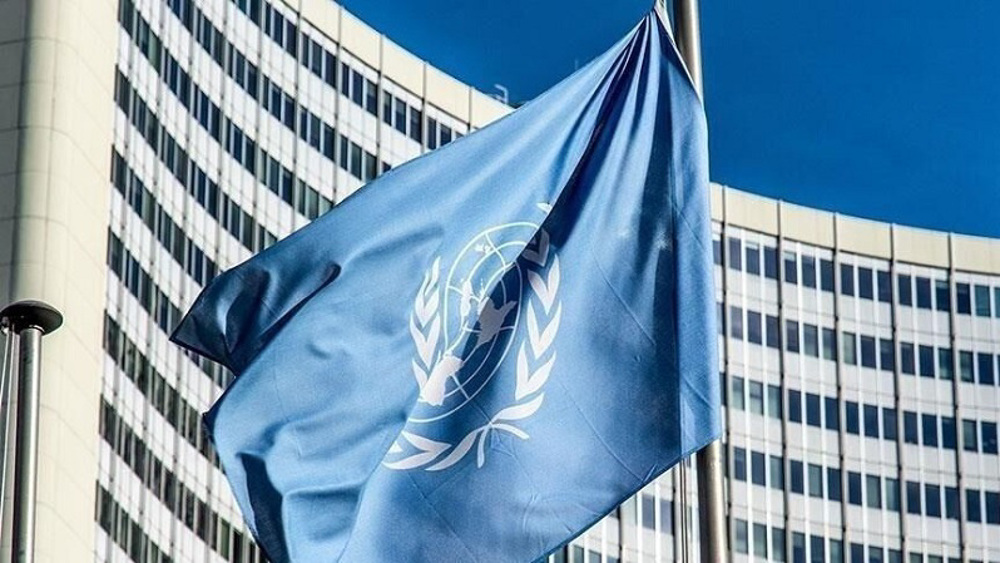
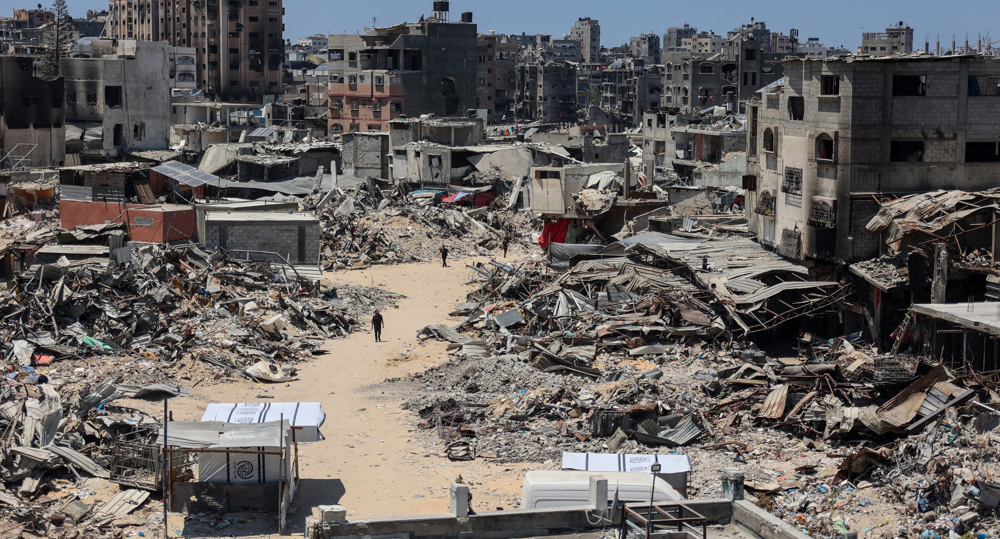
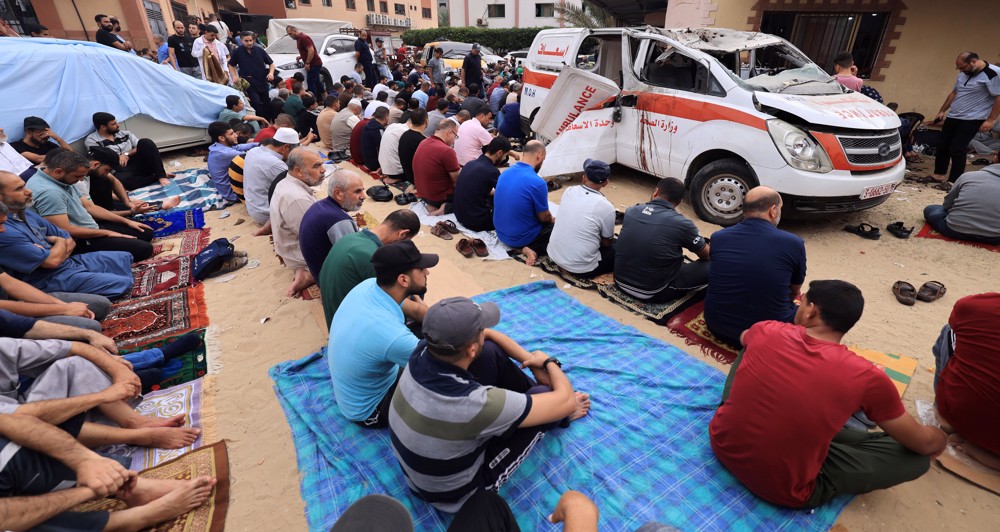
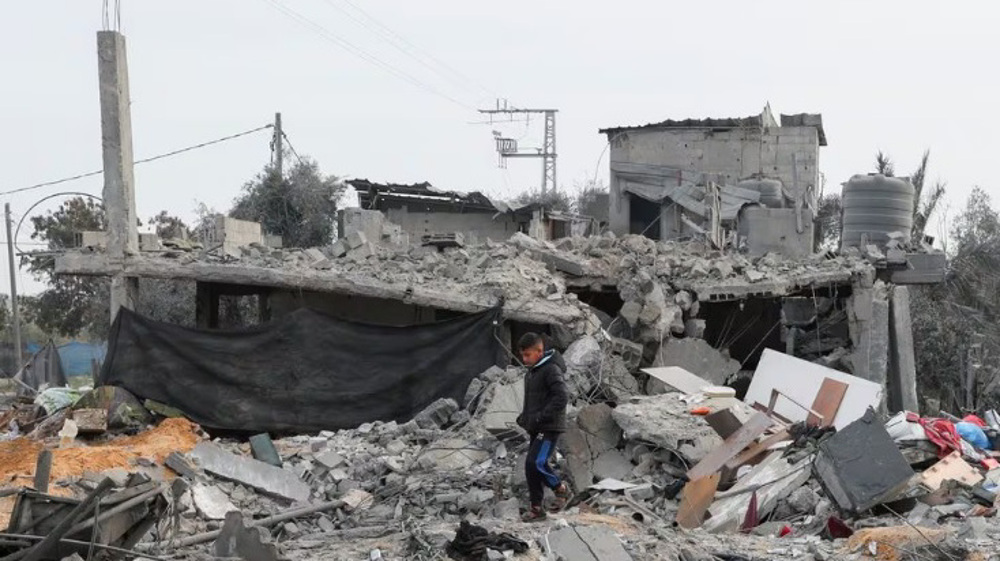
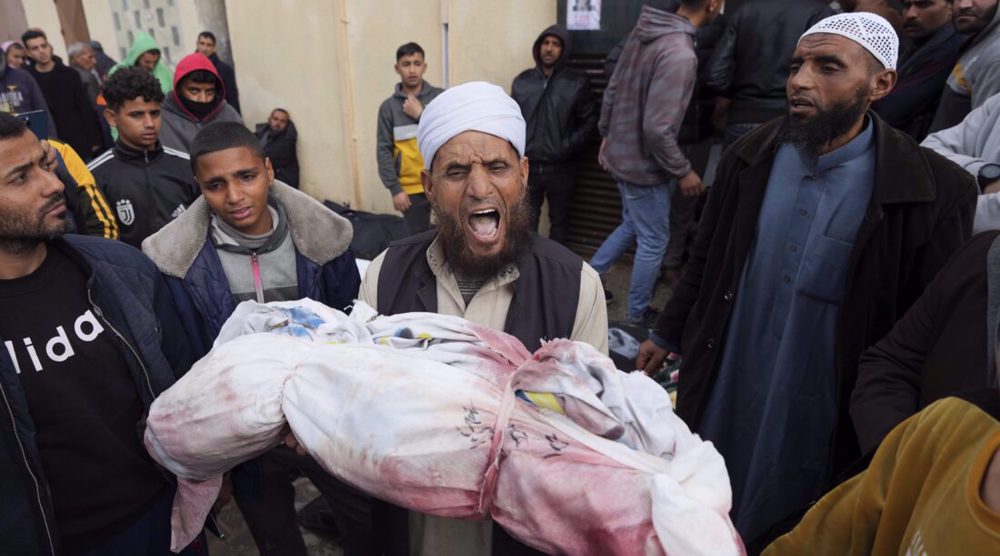
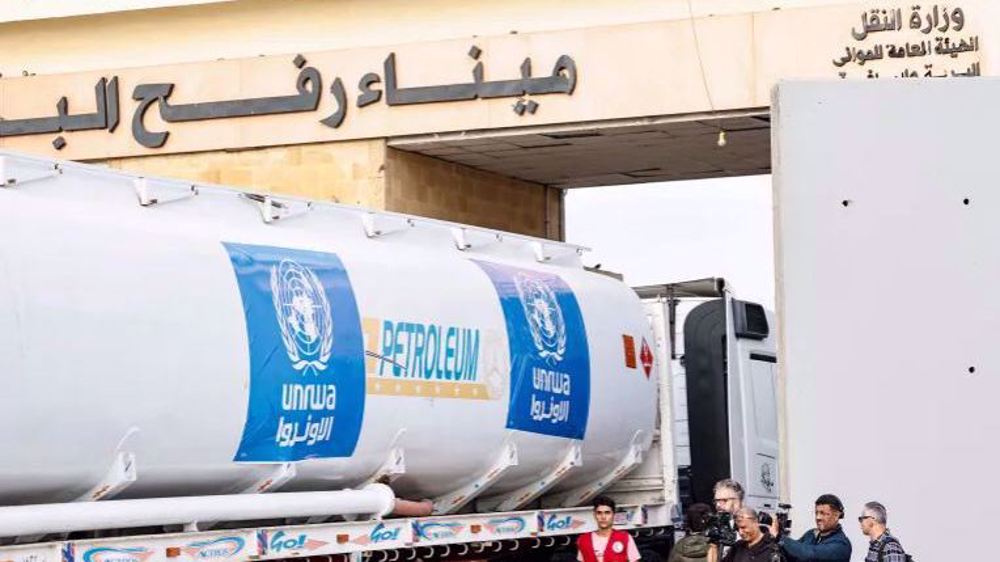

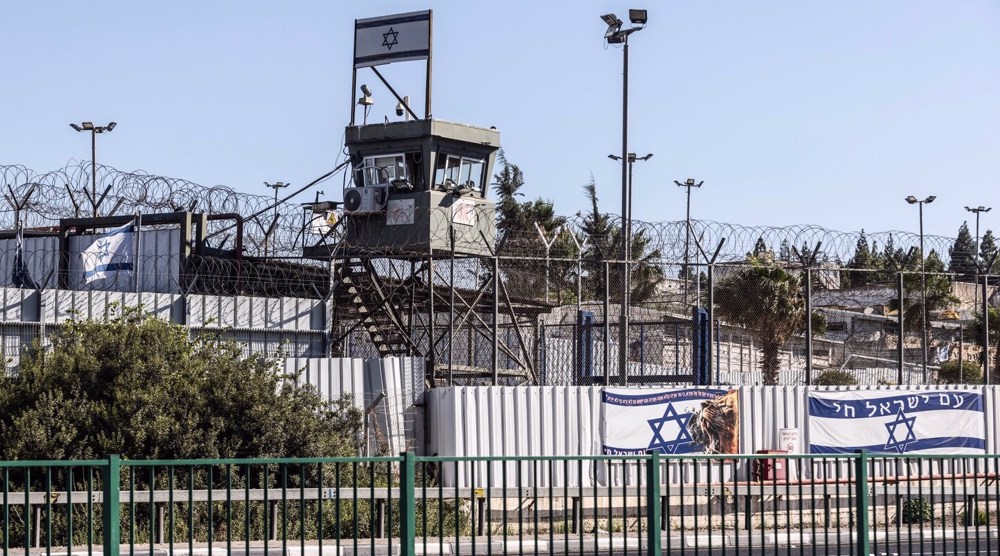
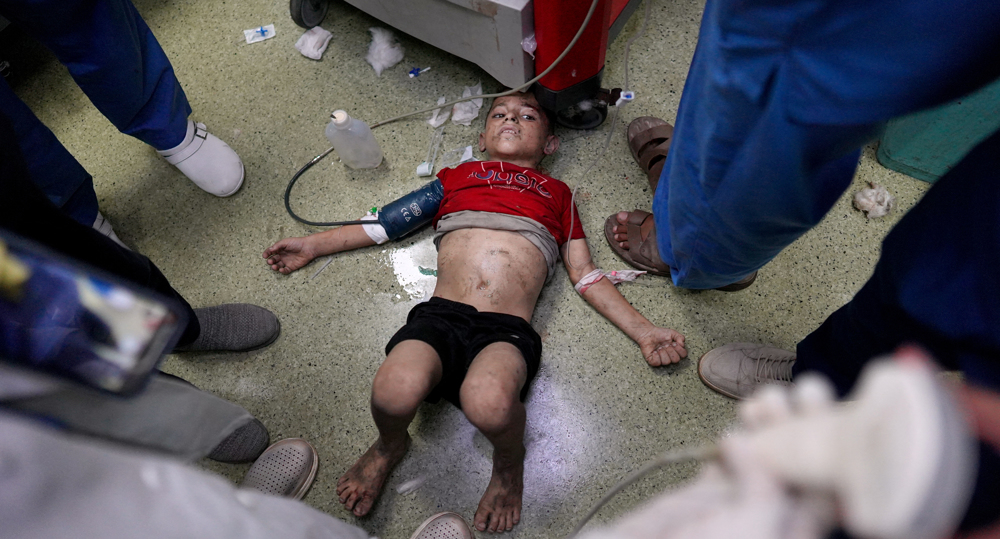
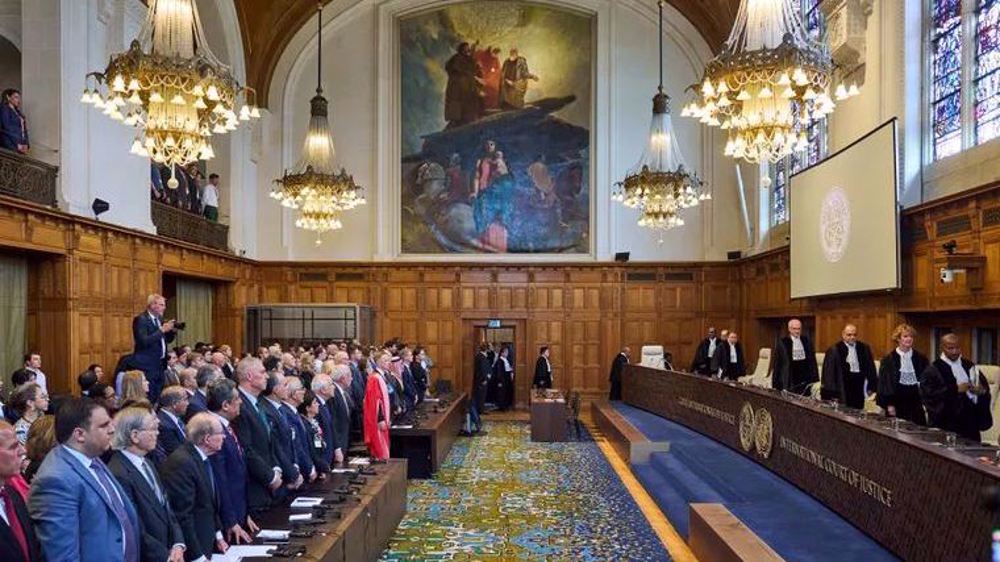
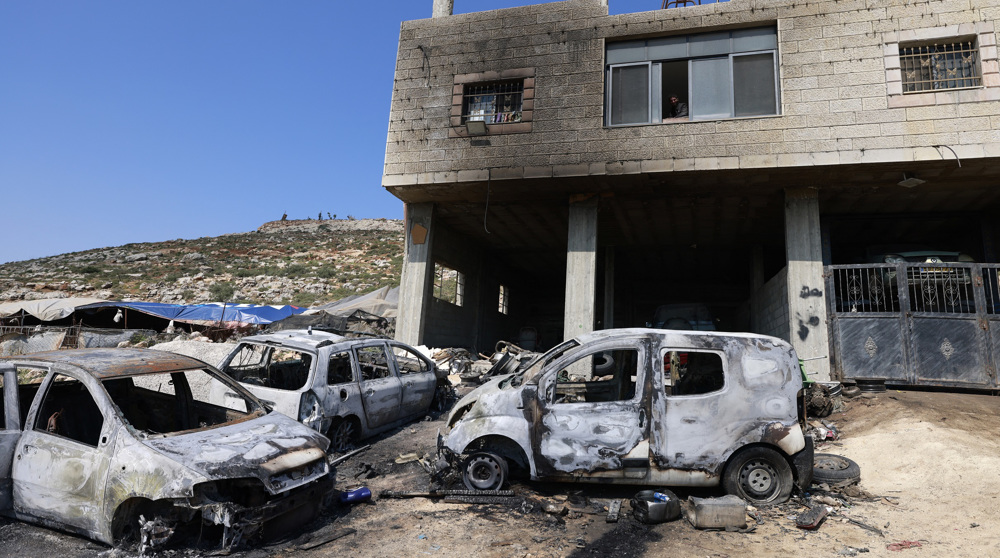
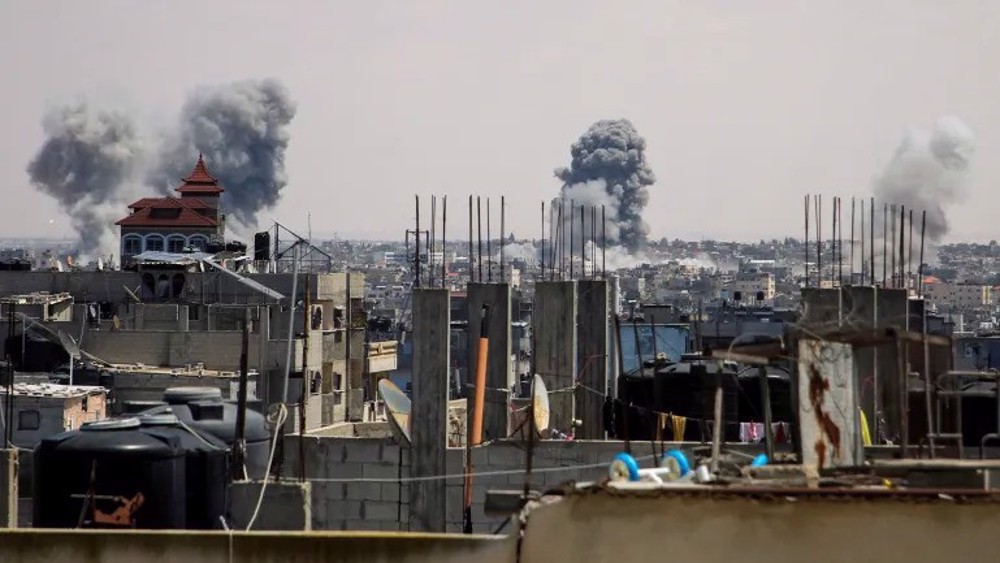
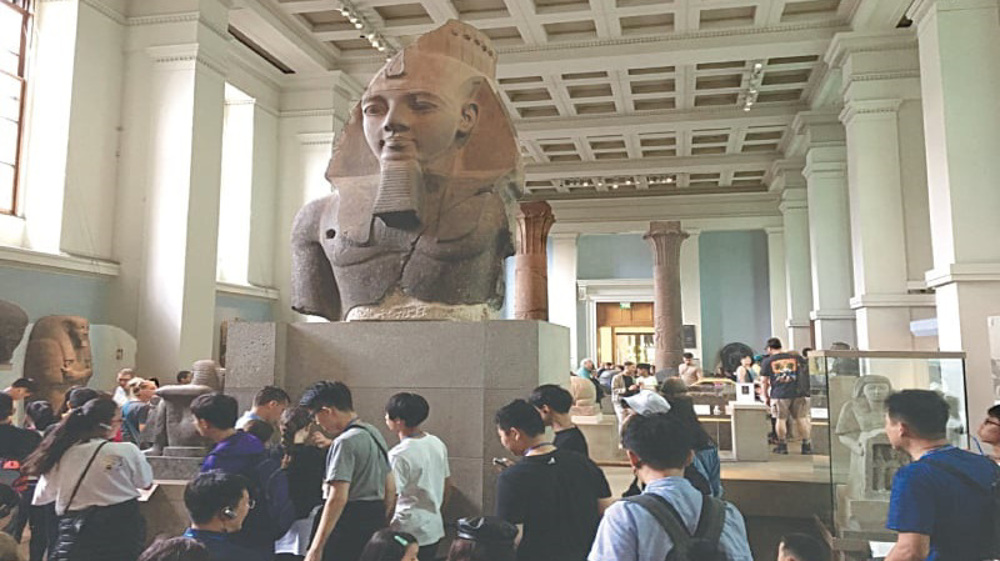
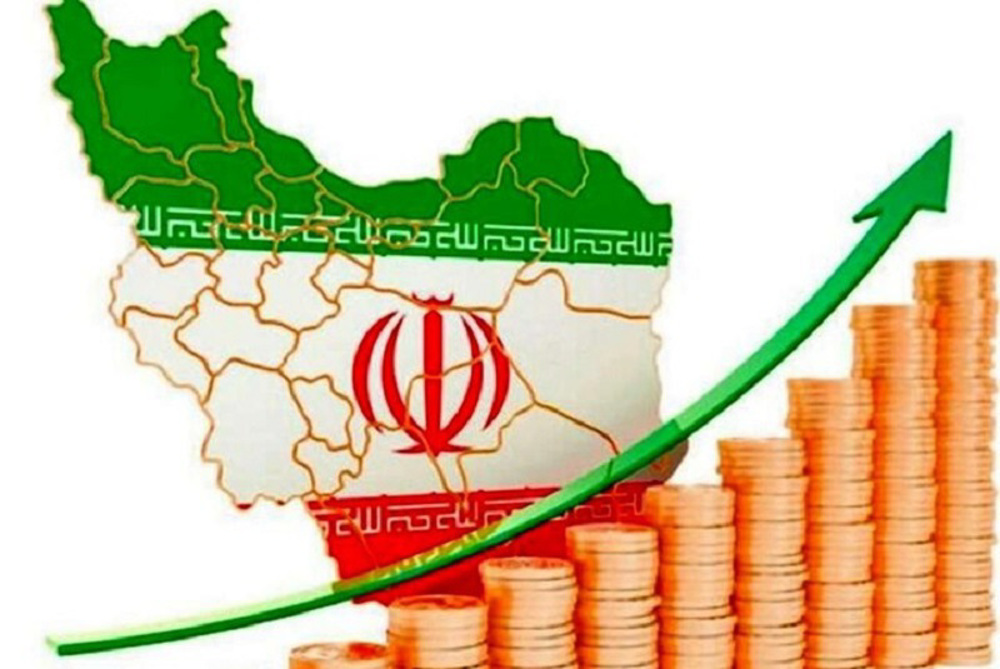




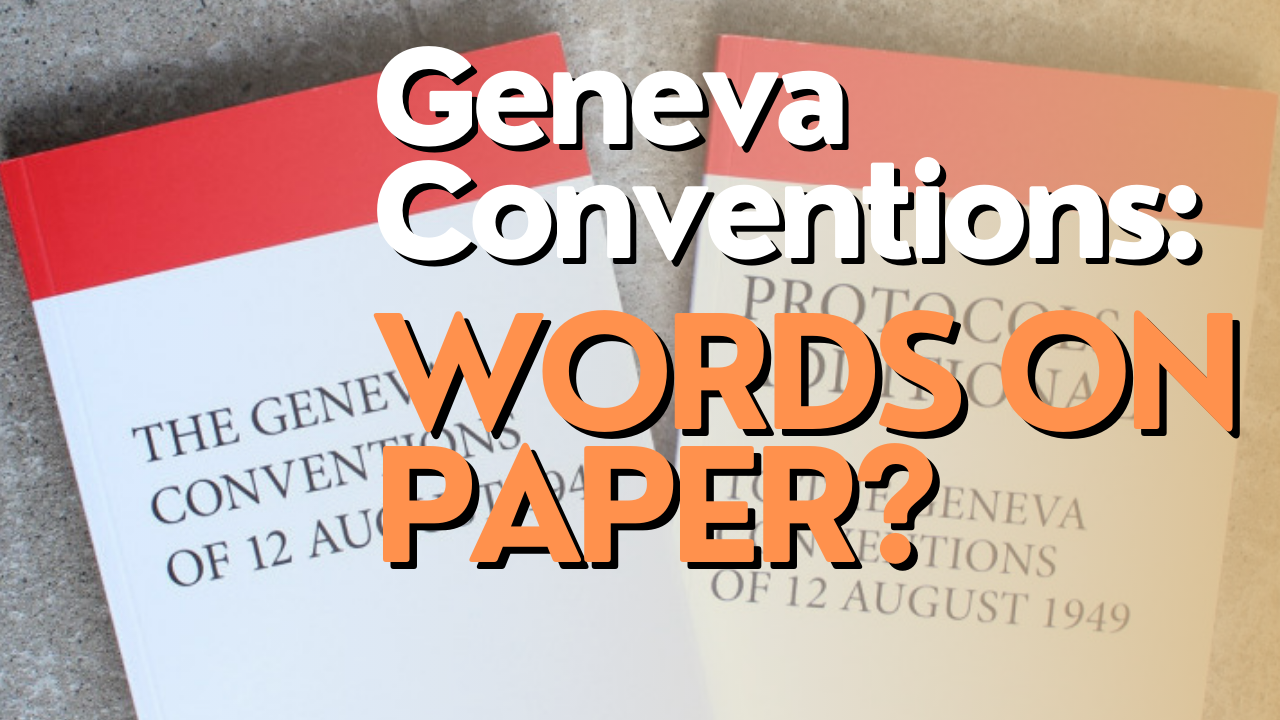

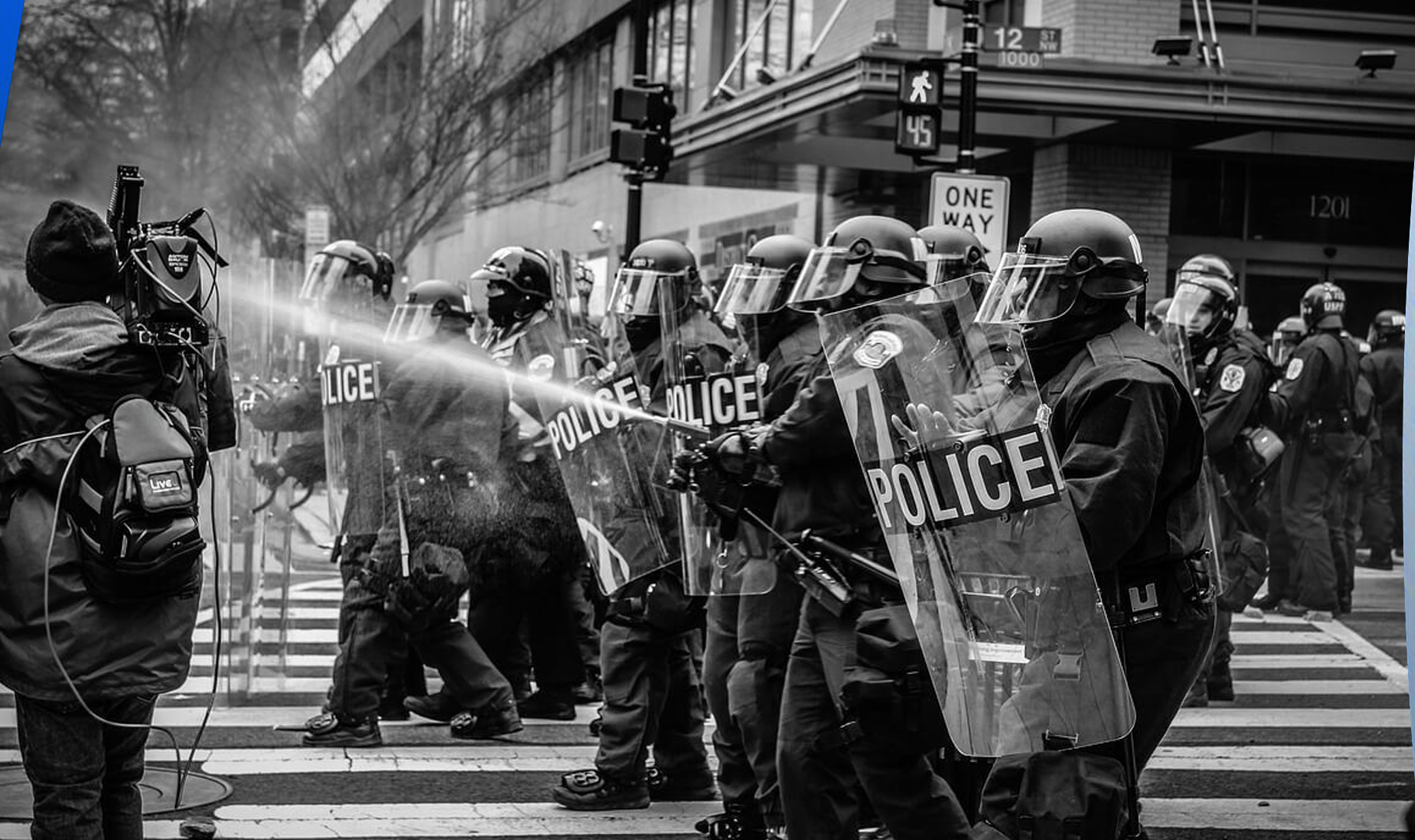
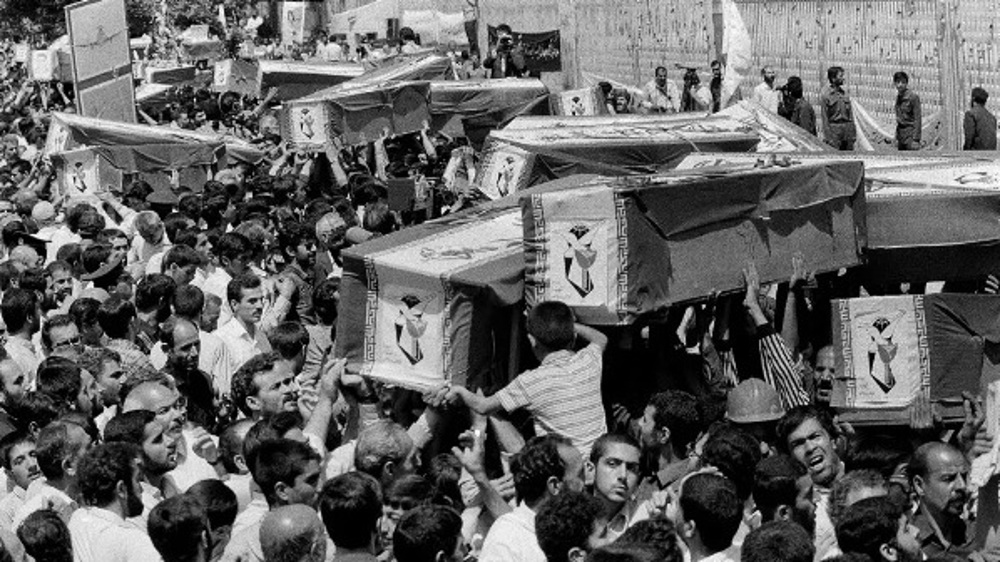
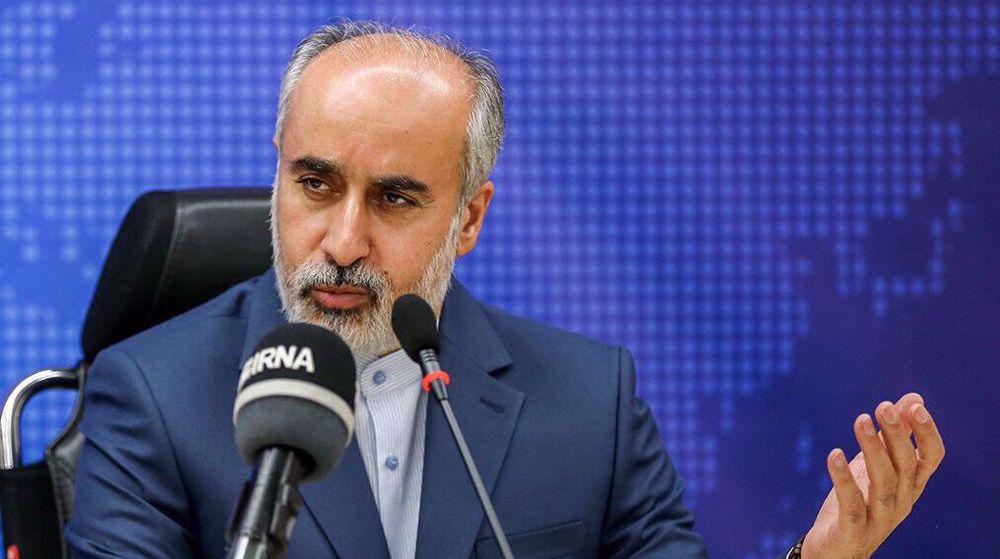
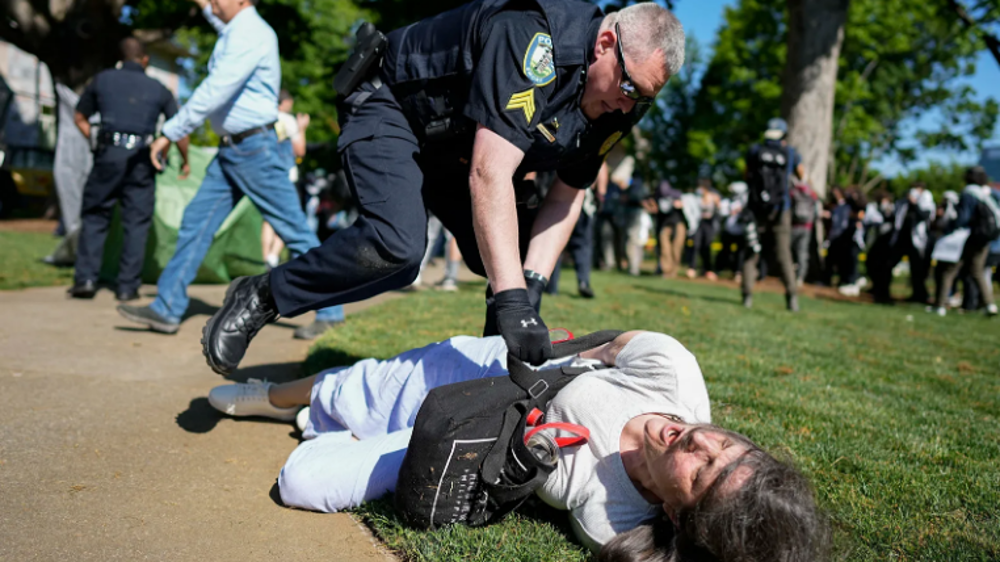
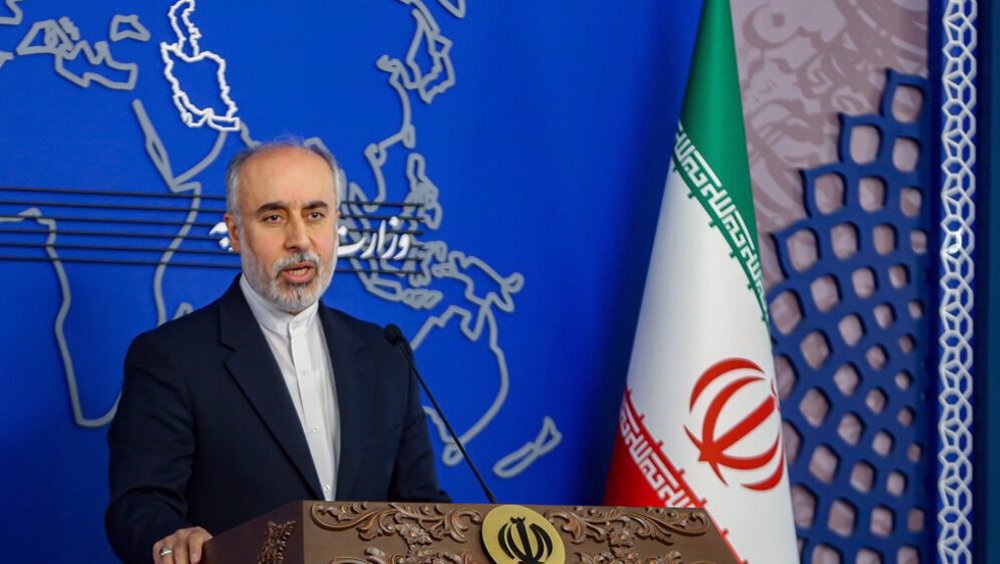
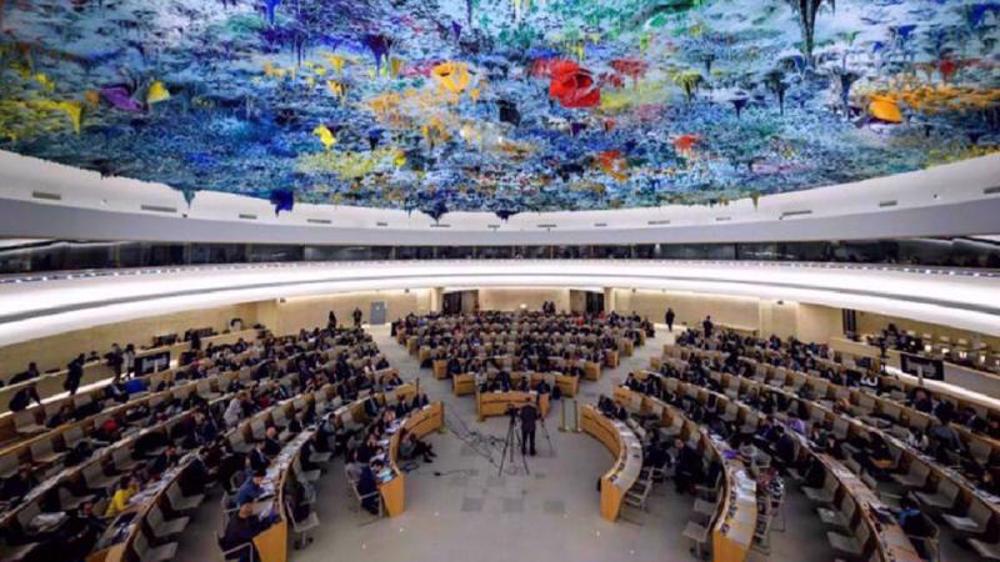
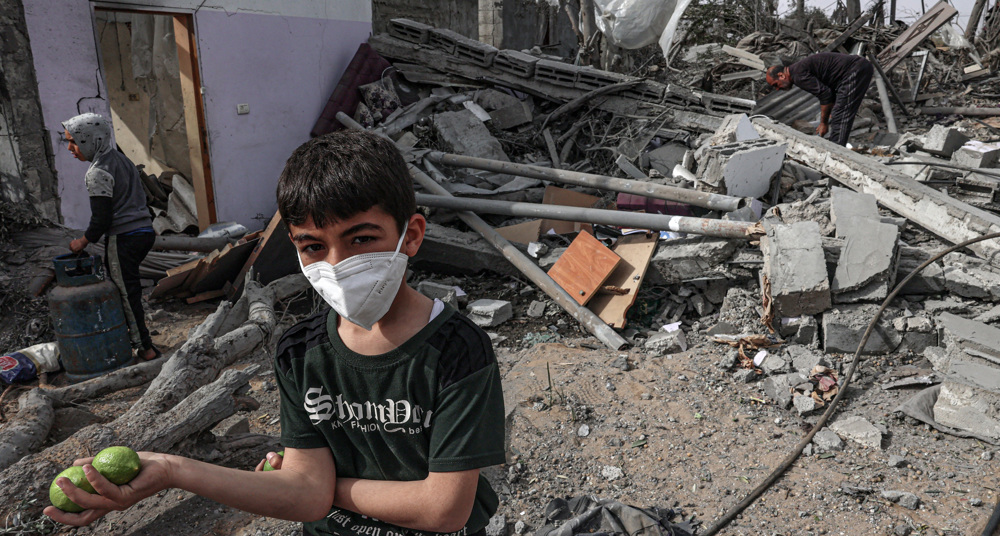
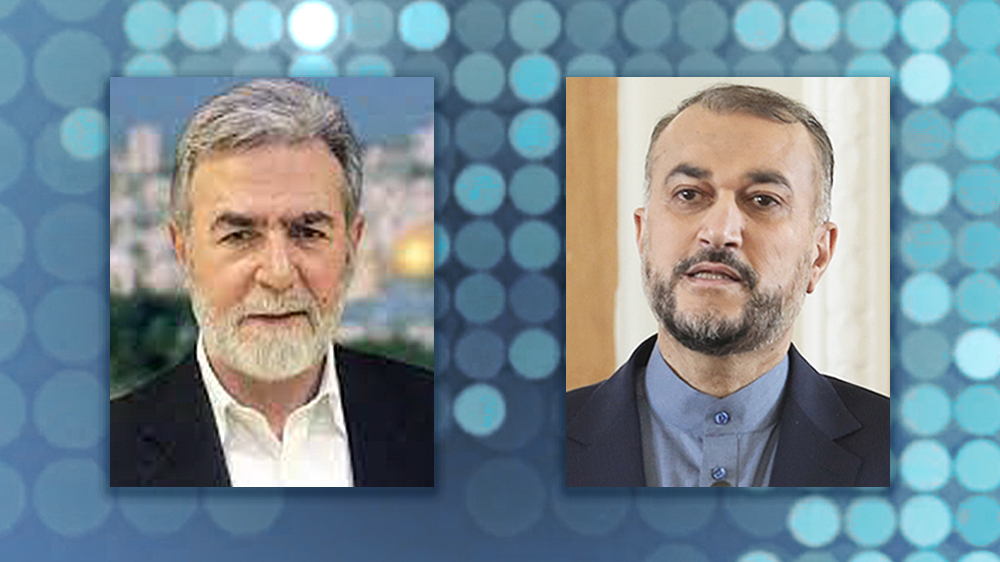

 This makes it easy to access the Press TV website
This makes it easy to access the Press TV website